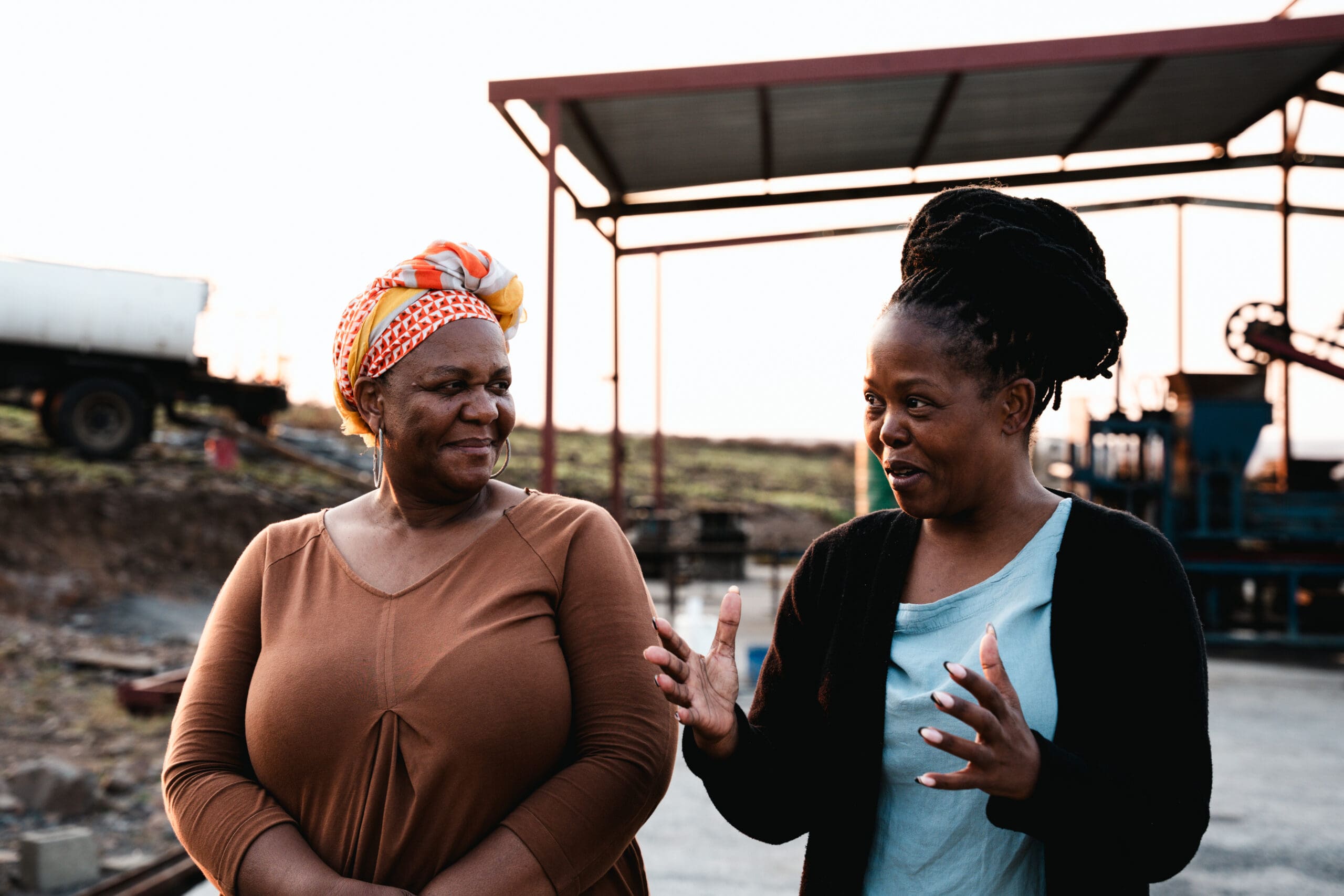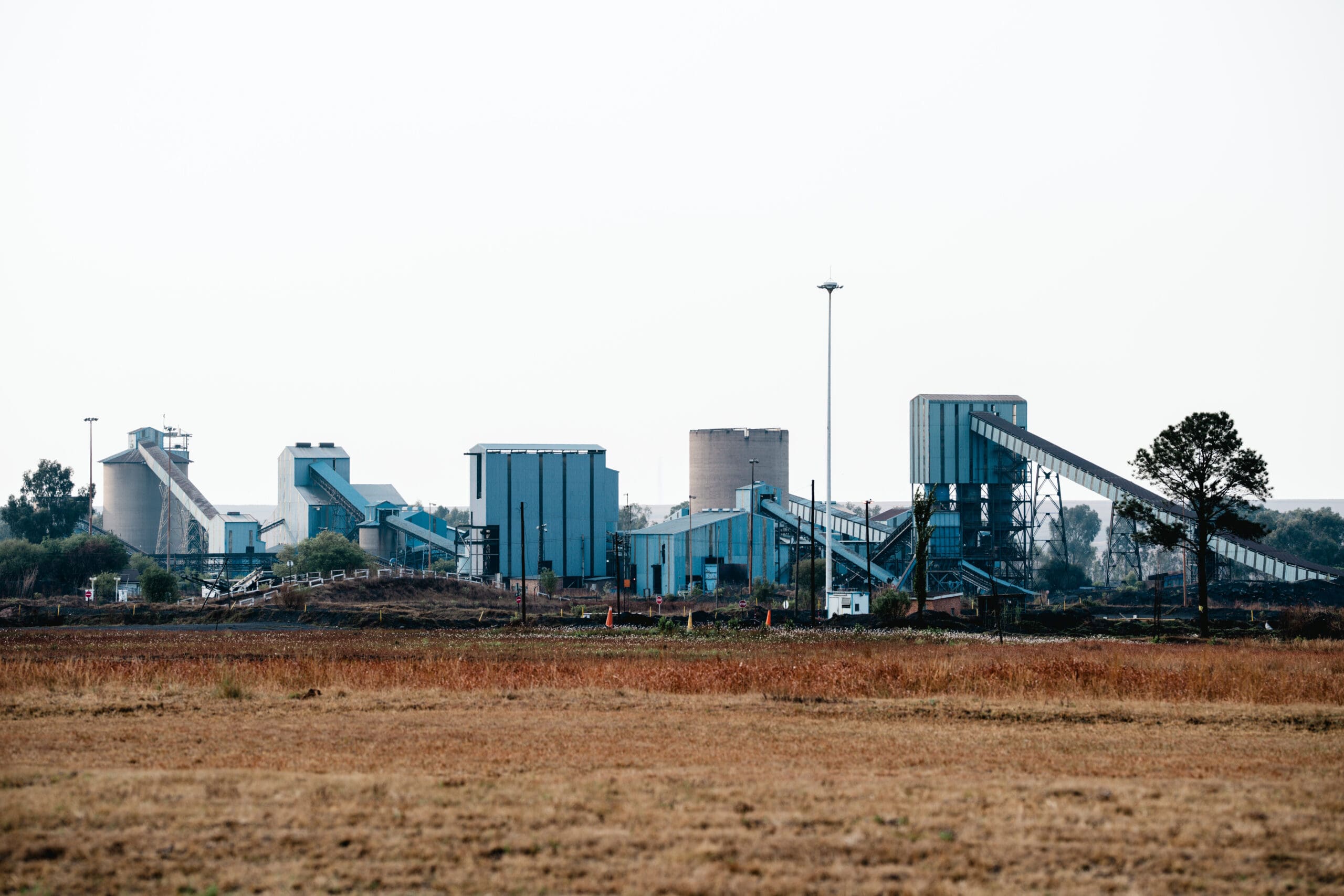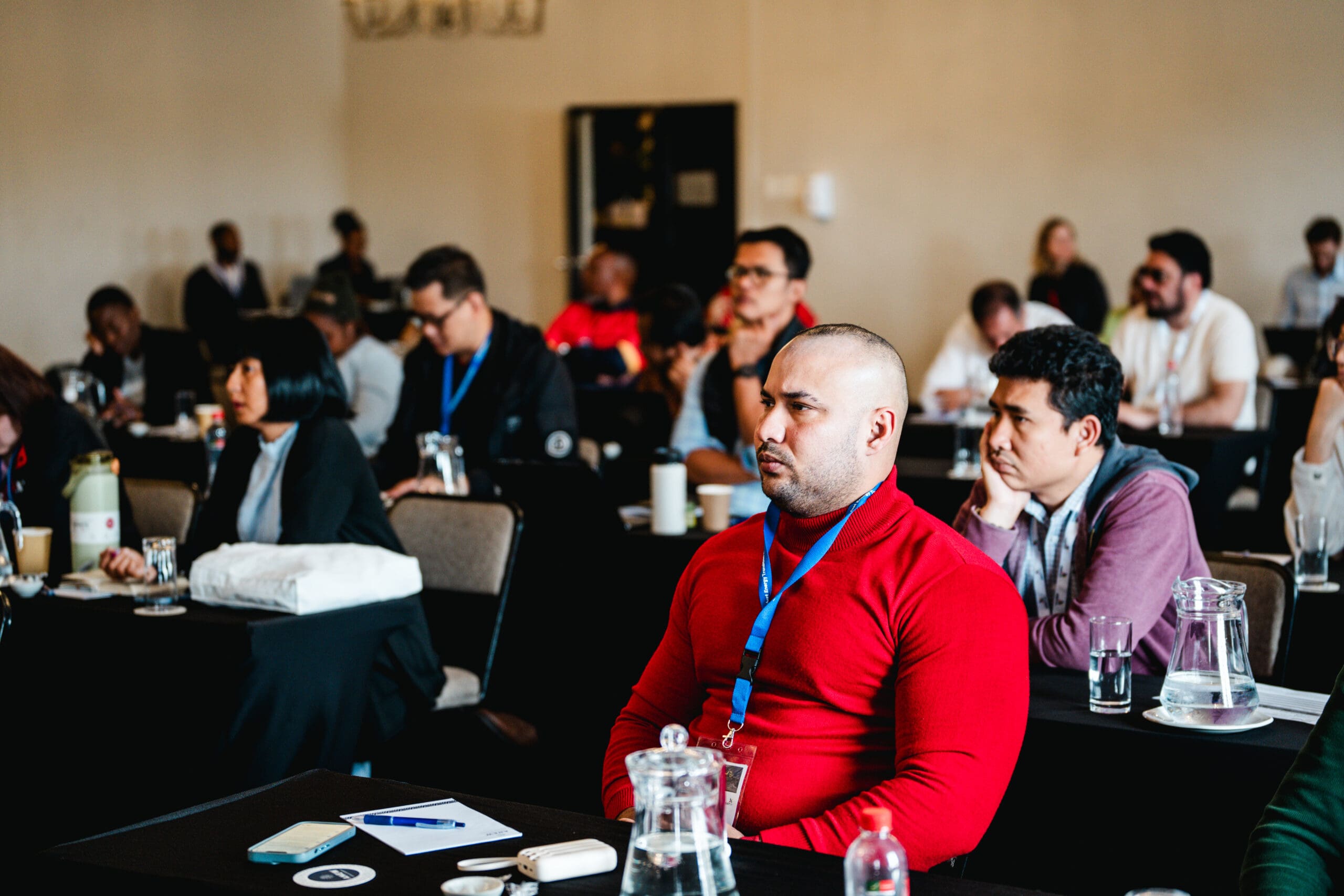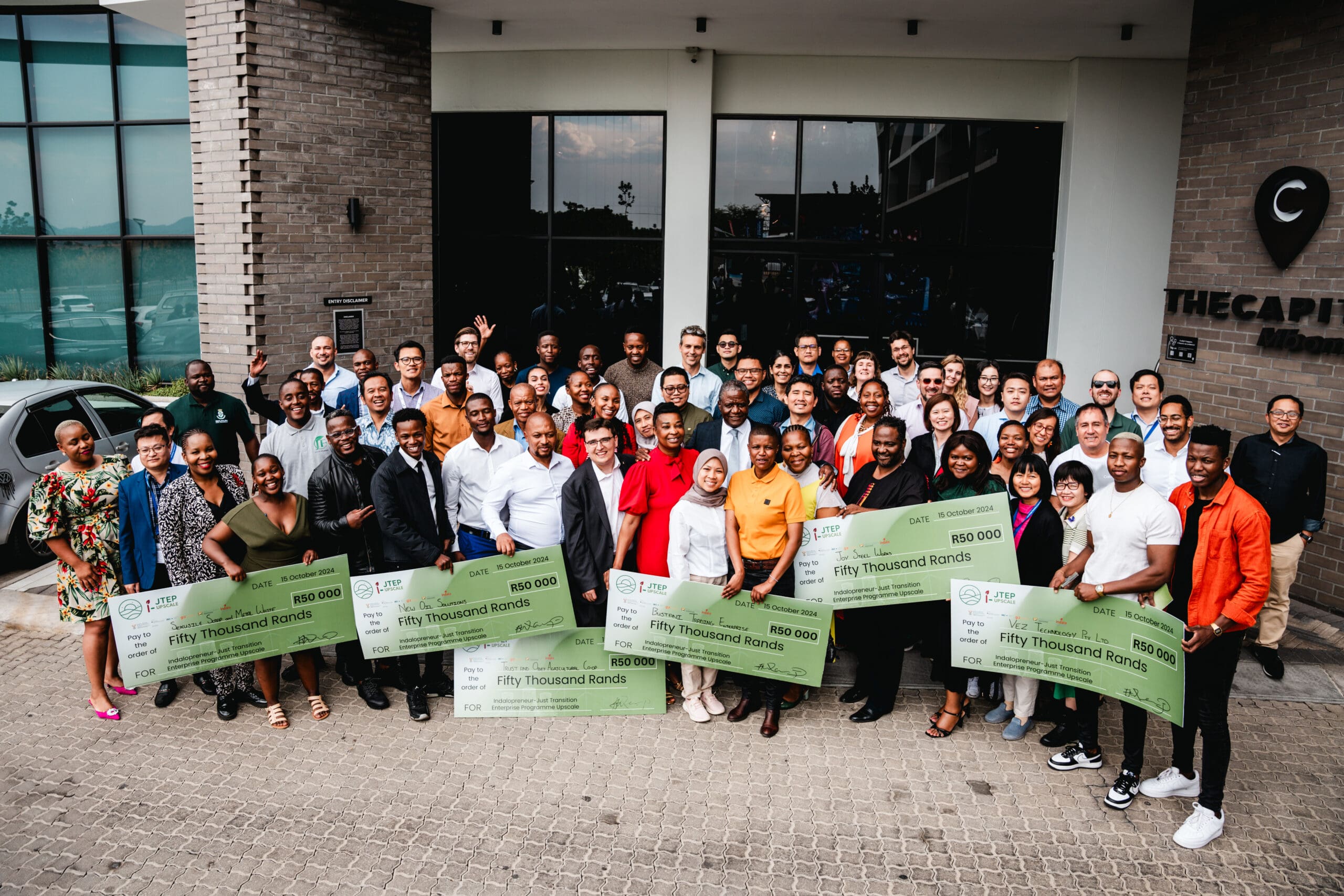Just Energy Transition in Coal Regions Interregional Platform: First study tour to Poland and Eastern Europe hailed a success
How can transitions away from coal be successfully managed? In autumn 2023, delegations from coal...
Study Tour
Country:
South Africa,

With a name meaning “land of the rising sun” in Zulu, the South African province of Mpumalanga offers rich biodiversity and an abundance of natural wonders, from vast canyons to subtropical savannahs. It is also home to South Africa’s considerable coal reserves, which have transformed the nation into one of the world’s most carbon-intensive economies and a top exporter of fossil fuels. With over 80% of the country’s coal production taking place in Mpumalanga, the province now faces a complex energy transition as the world shifts from its dependence on fossil fuels to greener alternatives and South Africa itself aims to achieve net-zero emissions by 2050.
Despite the scale of the task ahead and against a backdrop of loadshedding (scheduled electricity blackouts) in recent years, widespread corruption and the lingering legacy of apartheid, South Africa has drawn up bold and ambitious plans for a just transition in cooperation with international funding mechanisms such as the Just Energy Transition Partnership (JETP).
It is this constructive and forward-thinking approach that brought a cohort of stakeholders from coal regions across Chile, Colombia, Indonesia, Mongolia, Thailand, Vietnam, and the Philippines to Mpumalanga in October 2024 for a study tour organised by the Deutsche Gesellschaft für Internationale Zusammenarbeit as part of the IKI JET project.

The aim of the tour was to showcase success stories from South Africa’s transition away from coal and allow the participants to learn from the challenges encountered by the host country along the way. In turn, the international study tour participants shared experiences and lessons from their respective coal regions with South African stakeholders.
Taking place immediately after the International Forum for Coal Regions in Transition in Pretoria, the tour began with a deep dive into South Africa’s approach to just energy transition. Samuel Mabena of the national government’s Department of Forestry, Fisheries and the Environment gave a presentation on the country’s latest Climate Change Act, and Devan Pillay from the Presidential Climate Commission (PCC) gave an overview of South Africa’s Just Transition Framework and the broader work that the PCC is doing to support just transition by providing advice and ensuring inclusion.
Neil Cole, Financing Manager of South Africa’s Just Energy Transition Project Management Unit, then shared an overview of the JETP Investment and Implementation Plan for 2023–2027, before Gaylor Montmasson-Clair from the think tank Trade and Industrial Policy Strategies (TIPS) shared an in-depth look at South Africa’s coal value chain and what justice means for workers and communities affected by the transition.

The next day, participants gathered in the coal capital eMalahleni—literally meaning “place of coal” in Zulu—for an introduction to just transition approaches at Nkangala District Municipality from the municipality’s general manager, Thokozile Zulu. She explained how residents who had suffered family separations during coal’s heyday are now suffering again during the transition, and how local authorities have little capacity to support them. In addition, Promise Mabilo of the community-based organisation Vukani Environmental Movement gave an overview of her work to improve energy access and empower communities to participate in energy decision-making and policy formulation.
Finally, Zakhele Maya of the Dipaliseng Just Energy Transition Task Force outlined the work their non-governmental organisation is doing to build an alternative economy in the area around the Grootvlei Power Station—set to close in the second half of this decade—which encompasses advocacy, research, consultations, and partnerships. This was followed by a panel discussion on the impact of the coal value chain on South Africa’s political economy and workers. Speakers included Thabo Mokoena of the Congress of South African Trade Unions; Bhiza Mdubatse of the National Union of Mineworkers; Bonginkosi Mapahanga of the South African Transport and Allied Workers Union; and Ruben Hlophe of the South African Commercial, Catering and Allied Workers Union.
To highlight the importance of entrepreneurship as part of a just transition away from coal, Rest Kanju of Indalo Inclusive South Africa outlined how his organisation is supporting small, medium- and micro-sized enterprises (SMMEs) in Mpumalanga by enhancing capacity and providing access to funding. For a deeper understanding of how this support works in practice and to see the importance of economic diversification in coal-dependent regions, the participants then visited two local SMMEs.
First up was the Mkhondo Agri-Hub, where Matthews Hlabane rehabilitates contaminated soil to produce food and create jobs for workers away from the coal and steel industry. The former union activist currently employs 30 full-time staff members and another 30 to 40 temporary workers on his farm, where they cultivate vegetables and rear pigs, chickens, and goats. The harvest is then sold back to the local community at low cost.
At SAMANJALO, Prudence Simelane and her team use geopolymer technology to repurpose fly ash—a by-product of coal-fired power plants—into eco-friendly building materials like cement, bricks, and pavers. By making use of this abundant waste product, SAMANJALO is contributing to a cleaner environment and creating jobs for local young people.
The participants also visited a showroom set up by Vukani Environmental Movement at the eMpumelelweni township to promote the use of renewable energy solutions like rooftop solar panels, teach sustainable practices for energy consumption, and monitor air quality.
The following day, the participants visited Komati Power Station, a now-infamous coal-fired power plant that had been active for six decades before it closed in 2022 without providing adequate support for workers. With the site still managed by South Africa’s state-owned power company, Eskom, this was a chance to hear from Station Manager Thevan Pillay on the lessons learned, as well as to see for themselves Eskom’s initiatives to repurpose the site for renewable energy and storage, agriculture, and training projects for local people. Komati community leader George Mpe then shared details of the devasting impacts that the abrupt mine closure had—and is continuing to have—on local workers, their families, and the wider community. A guided journey through the neighbouring village, led by a local resident, further illuminated the hardships faced by those who were once dependent on the power plant.
On the final day of the study tour, a summary of just transition activities in the wider province was presented by Makhosazane Masilela, Acting MEC for Agriculture, Rural Development, Land and Environmental Affairs, and Carla Hudson of the Mpumalanga Green Cluster Agency (MGCA), an organisation working at the interface between business, government, and academia to identify and remove barriers to a financially viable green economy, before Ruan Fourie of JUST SA outlined the project’s work in the region. A final visit to Mpumalanga’s expansive, soon-to-open International Fresh Produce Market gave insight into provincial efforts to incentivise agriculture as a sustainable and economically viable livelihood as part of a just transition. Trading produce at this market will give small-scale farmers direct access to new markets and opportunities.
As a fitting conclusion and in celebration of the enterprising young people creating jobs away from the mines in Mpumalanga, eight local SMMEs—out of a cohort of 16 who made their pitches—were presented with grant awards to support their budding businesses under the Indalovator Just Transition Entrepreneur Programme. The week ended with a panel discussion featuring speakers from MGCA and provincial government departments in Mbombela.

Throughout the study tour, the visiting participants not only actively engaged in discussions about the learnings from South Africa but also shared stories from their own countries with the South African stakeholders they met, making it a dialogue that was beneficial for all sides. Topics covered included the successes and challenges of coal phase-out in Chile; strategies for mine reclamation and closure in Indonesia; and how the Colombian government is developing “energy communities” to support a just transition.
All photos by Jess Meniere. See video highlights of the IKI JET study tour here and subscribe to our newsletter to stay up to date.
Receive updates on just energy transition news, insights, knowledge, and events directly in your inbox.